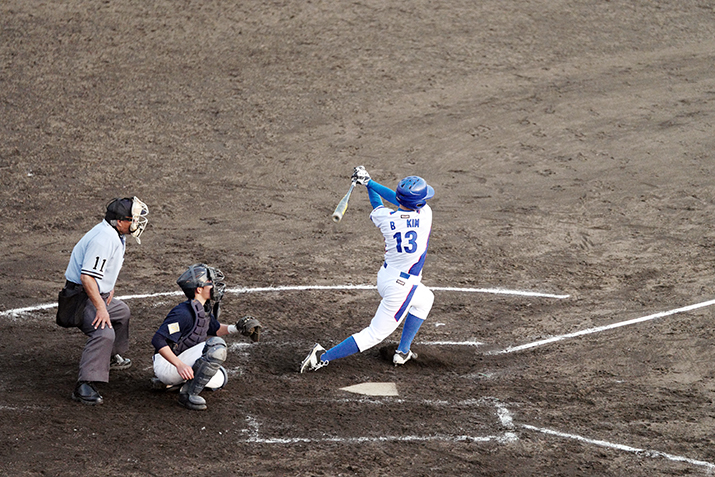When I think back to when I was a player myself, I remember the constant pressure of having to do better. When the stress was at its peak, even the lights of the stadium felt stressful and anxiety wracked my body, making my legs tremble. When the stress becomes insurmountable, people usually want to lean on someone for emotional support. To me, this was my parents, who gave me advice and encouraged me to go on. However, professional athletes must give the appearance that they are the epitome of strength and resilience as a show of weakness can lose the support of their fans. Because of this, they are often lost as to who they should turn for emotional support when they need it. This is where the role of a manager comes into play.

Managers are capable of bringing stability to the players and meeting their emotional needs. But how can they offer specific destressing solutions for every individual on the team? When I asked Mr. Cho, he admitted that during the season, “agents don’t really get to be with the players all the time.” In one year, players spend seven to eight months traveling to various locations to play against different teams, so “it is crucial to keep up a conversation with each player to know their mental state.” He told me in a joking manner that he tells players, “We should know more about you than your parents.” To gain such a deep understanding of each player, baseball teams began hiring “mental coaches,” as Mr. Cho puts it. They are professionals in the field of psychology who work with the players and agents to understand the mental stress of the players and give the appropriate diagnosis.

Another important way in which managers help strengthen the mental fortitude of players is dealing with the negativity online. While Mr. Cho says that the players are immune to most of the negative comments, there are times when those comments cross the line. In these cases, “we take appropriate actions to find and punish” the writers of the comments. It is important to note that this has not occurred often, Mr. Cho tells me. “While some players might struggle inwardly after reading the comments, players usually shrug them off and focus on the next game.” After hearing this, I thought that perhaps the reason why these players are able to endure the toxicity is the knowledge that someone has their back, ready to sue and defend them. When I relayed this idea to Mr. Cho, he readily agreed saying that “yes, that is really what we are here for, to provide the players with trust and stability.”

In his closing remark, Mr. Cho said, “In the past, there were only physical coaches, but now mental coaches have become just as important,” and I have little doubt that this is true. It is too much for athletes to manage the stress alone, and their only medium for getting help is to talk, to talk with people close to them, whether it be family or friends. The role of the manager is to work in the background, providing the optimal conditions for players to rest and destress. To become a successful sports manager, Mr. Cho advised that studying psychology will be crucial. As I look forward to a career as a sports manager, I want to be able to understand the players and help them release their stress in meaningful ways, which means that I will be studying psychology very, very soon.

Bumm Jimmy Kim
Grade 12
Saint Louis School (Hawaii)

